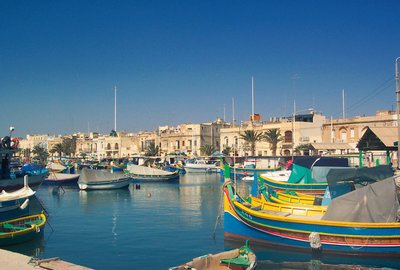
A Changing Country: Cuba and the Internet
If you are planning a holiday or language trip to Cuba you will probably want to know whether you can send messages or post on your social media whilst you are on site. People who stay in a hotel can remain calm in the knowledge that most hotels are equipped with contemporary technologies such as Wi-Fi, although this might be limited to the lobby. You shouldn’t count on a quick internet connection, but it should be enough for data usage that does not require a large amount of online processing. In order for you to use the Wi-Fi there are several steps that you’ll need to complete first:
Acquiring mobile internet
First you need to acquire an ETECSA card. What is ETECSA you ask? Simply put, it is a Cuban telecommunication company that is owned by the state. It provides mobile internet and Wi-Fi to both tourists and locals that live in Cuba. These cards are also sometimes referred to as “Nauta”, but the more commonly known name is ETECSA.
The available offers for mobile internet are prepaid cards or “Tarjeta de Navegación” that you pay 2 CUC for per hour. These cards are usually available in most hotels as well as ETECSA shops. It is important to note that there can be very long queues in front of the places at which these cards are sold. When making your purchase you should always have either your ID or passport on you as some sales spots require you to show one of these documents before you can buy a card. Another important fact to know is that the popularization of these mobile internet cards has sparked the dealing of said cards on the black market. Black market sales people can be found on the streets and in parks near Wi-Fi hotspots, but while it might save you the time to wait in a long queue, cards bought from these people are more expensive than legitimate cards and are also likely to malfunction.
Once you have successfully obtained a card you will be able to access your username and password that are written on it. Please also note that you will not be able to use the same prepaid card for multiple different devices. Every single device requires its own individual internet card in order to access the Wi-Fi. The card can be used multiple times, which means that you do not need to use up the quota of an hour within one session before the access ceases. You will be able to use the card for 30 days after your first use.
When you use your card to access the internet for the first time you may notice that it does not log you out automatically after you have stopped using online functions. The following instructions will help you avoid using up all of your mobile data quota whilst you are not using the mobile functions of your card: You will want to manually log out by typing 1.1.1.1 into the main browser. This will take you to the log out screen where you can press “cerrar session” in order to quit your current online session. You will however need to replace your current card with a new one once you have used up your full hour’s quota of online time.
It is not common for private properties and accommodations to have Wi-Fi connections or to offer internet access. This is why external Wi-Fi hotspots such as parks and areas around hotels often have crowds of people gathered around them with phones and laptops so that they can gain access to the internet provided within the reach of Wi-Fi in surrounding spaces. This is why you should not count on having local access to online functions if you have booked your stay inside a private accommodation.
Locked services in Cuba
Facebook and Instagram are accessible on the Cuban internet, not to worry. Apps that do function in Cuba may have a slower loading times than what users from other cities and countries are used to, but there are also some apps and services that are blocked from use completely. PayPal, Skype and calls on WhatsApp are all not available in the Cuban internet services, but there is an alternative app called Imo with which you can use the video call feature for free. That is provided that your internet connection is strong enough.
You should always keep in mind that the internet connection in Cuba can run into difficulties at any times, even when you are using your internet card. Certain new phones will recommend that you do not access the Cuban Internet due to the outdated security programs of the local internet. It is possible that these kinds of mobile phones will reject the use of the Cuban internet cards. For certain phone models there are tricks and hacks that allow you to disable this security warning or the rejection of the internet card. If you are unsure about these procedures it is advisable to contact your phone company in order to receive further details. Since issues may arise it would also be worth investing time researching the Cuban sights and all of the places worth seeing, which you can also keep track of by taking a travel guide with you.









